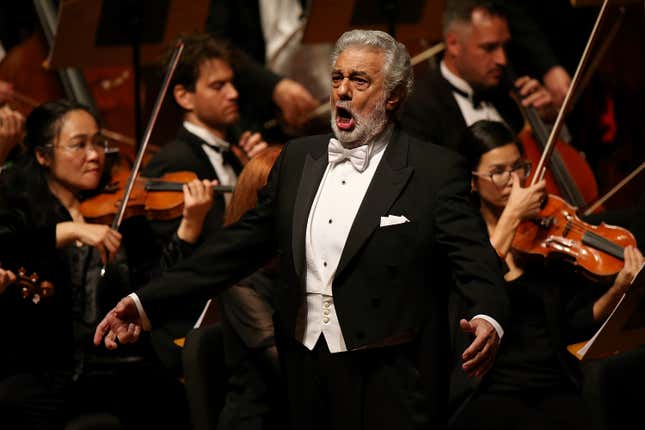Plácido Domingo: The Brilliant ‘Cash Cow’ the Met Opera Protected—Until It Cost Them Too Much
Latest

Late Tuesday, opera megastar Plácido Domingo stepped down from his upcoming performances at the Metropolitan Opera, following numerous allegations of sexual misconduct. Though Domingo continues to dispute the stories of almost two dozen women, as he has since the allegations first appeared, he said his presence in the production of Macbeth would “distract from the hard work” of his colleagues. In response, the Met issued a press release that seemed to imply that the opera house had asked him to leave. “The Metropolitan Opera confirms that Plácido Domingo has agreed to withdraw from all future performances at the Met, effective immediately,” read the statement. “The Met and Mr. Domingo are in agreement that he needed to step down.”
This is uncanny, as on Saturday, mere days before, Met general manager Peter Gelb reportedly met with employees to explain why the opera house hadn’t done a damn thing about the allegations, and why it would continue along this path: No investigation, no suspension, nothing. In the process, Gelb waved off 20 women’s strikingly similar allegations of mistreatment—including groping, sexual coercion, and career retribution—as simply not convincing enough, according to NPR.
“Perhaps Domingo, the cash cow, was now costing them too much.”
When NPR reported late Monday on the Met meeting, it seemed a depressing testament to how twenty women’s allegations, documented and corroborated in a pair of deeply reported Associated Press articles, faired against a world-renowned classical musician, mainstream breakout star, and money-making powerhouse. As a woman chorister told NPR, “Plácido Domingo is a huge cash cow, and sometimes I feel like management cares more about money and reputation.” But how quickly the financial calculus can change: The story started to gain traction in the press, thanks to the NPR article, as internal and external outrage continued to build. Perhaps Domingo, the cash cow, was now costing them too much. Now it’s: buh-bye.
-

-

-

-

-

-

-

-

-

-

-

-

-

-

-

-

-

-

-

-

-

-

-

-

-

-

-

-

-

-

-

-

-

-

-

-

-

-

-

-








































